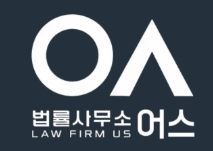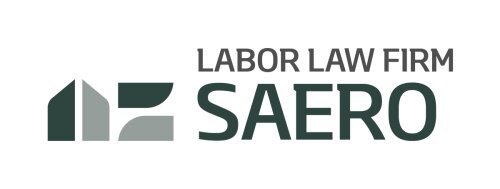Best Employment Rights Lawyers in Seoul
Share your needs with us, get contacted by law firms.
Free. Takes 2 min.
List of the best lawyers in Seoul, South Korea
About Employment Rights Law in Seoul, South Korea:
Employment Rights Law in Seoul, South Korea governs the relationship between employers and employees in the workplace. It covers various aspects such as employment contracts, working hours, wages, benefits, termination of employment, and workplace safety. Understanding your rights as an employee can help protect you from any potential abuse or unfair treatment in the workplace.
Why You May Need a Lawyer:
You may need a lawyer in Employment Rights in Seoul, South Korea if you are facing issues such as unfair dismissal, discrimination, harassment, unpaid wages, or violations of your employment contract. A lawyer can provide you with legal advice, represent you in negotiations with your employer, and help you navigate the legal system to protect your rights as an employee.
Local Laws Overview:
Key aspects of local laws relevant to Employment Rights in Seoul, South Korea include the Labor Standards Act, which sets out regulations regarding working hours, wages, and leave entitlements. The Industrial Accident Compensation Insurance Act provides coverage for work-related injuries, while the Equal Employment Opportunity Act prohibits discrimination based on gender, age, disability, or nationality in the workplace.
Frequently Asked Questions:
1. Can my employer terminate my employment without any valid reason?
No. In Seoul, South Korea, employers must have a valid reason to terminate an employee's contract. Unfair dismissal can be challenged through legal avenues.
2. What are the maximum working hours allowed in Seoul, South Korea?
Under the Labor Standards Act, the maximum working hours per week are 52 hours, including regular and overtime hours.
3. Am I entitled to paid leave as an employee in Seoul, South Korea?
Yes. Employees are entitled to annual paid leave according to the number of years of service.
4. What can I do if my employer is not paying me my wages on time?
You can seek legal assistance to help you claim any unpaid wages from your employer.
5. Is workplace discrimination illegal in Seoul, South Korea?
Yes. The Equal Employment Opportunity Act prohibits discrimination in the workplace based on certain protected characteristics.
6. Can I file a complaint against my employer for workplace harassment?
Yes. Workplace harassment is illegal in Seoul, South Korea, and you can file a complaint with the relevant authorities.
7. What are my rights if I experience a work-related injury in Seoul, South Korea?
You are entitled to compensation for work-related injuries under the Industrial Accident Compensation Insurance Act.
8. Can my employer change the terms of my employment contract without my consent?
No. Changes to the terms of an employment contract must be agreed upon by both parties.
9. How can I report a violation of my employment rights in Seoul, South Korea?
You can report violations of your employment rights to the Ministry of Employment and Labor or seek legal assistance from a lawyer.
10. What legal remedies are available to me if my employment rights are violated?
You may be entitled to compensation, reinstatement, or other legal remedies if your employment rights are violated in Seoul, South Korea.
Additional Resources:
For more information on Employment Rights in Seoul, South Korea, you can visit the Ministry of Employment and Labor website or contact the Korean Bar Association for legal assistance.
Next Steps:
If you believe your employment rights have been violated or you require legal assistance, it is advisable to consult with a qualified lawyer who specializes in Employment Rights in Seoul, South Korea. They can provide you with advice on your rights and options for seeking a resolution to your issue.
Lawzana helps you find the best lawyers and law firms in Seoul through a curated and pre-screened list of qualified legal professionals. Our platform offers rankings and detailed profiles of attorneys and law firms, allowing you to compare based on practice areas, including Employment Rights, experience, and client feedback.
Each profile includes a description of the firm's areas of practice, client reviews, team members and partners, year of establishment, spoken languages, office locations, contact information, social media presence, and any published articles or resources. Most firms on our platform speak English and are experienced in both local and international legal matters.
Get a quote from top-rated law firms in Seoul, South Korea — quickly, securely, and without unnecessary hassle.
Disclaimer:
The information provided on this page is for general informational purposes only and does not constitute legal advice. While we strive to ensure the accuracy and relevance of the content, legal information may change over time, and interpretations of the law can vary. You should always consult with a qualified legal professional for advice specific to your situation.
We disclaim all liability for actions taken or not taken based on the content of this page. If you believe any information is incorrect or outdated, please contact us, and we will review and update it where appropriate.














